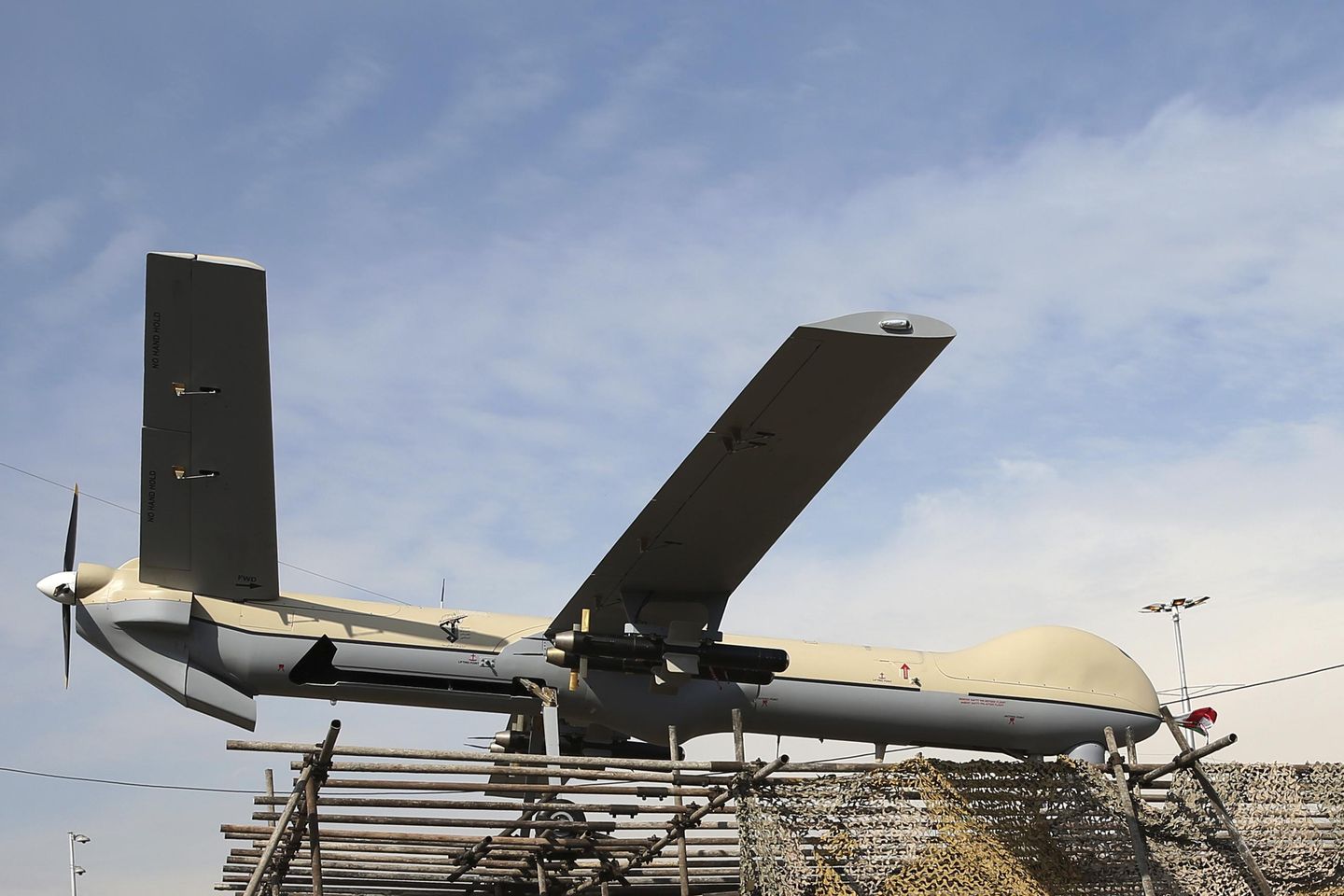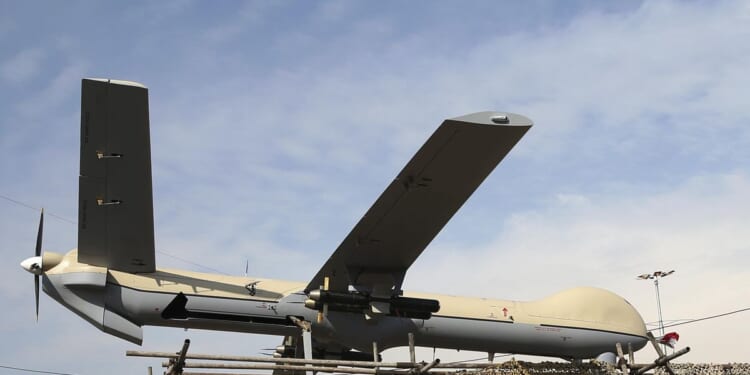
The military brass at the Pentagon are not the only ones focused on making new autonomous weapons systems that can harness emerging artificial intelligence capabilities.
In-Q-Tel, the CIA-backed strategic investment fund, also sees drone warfare as a crucial realm within the future of global conflict and believes the U.S. needs to move more quickly toward developing its own drone industrial base.
Commercially produced drones from markets in various corners of the world have shrunken the “gap between the Davids and Goliaths” on the battlefield, says In-Q-Tel President and CEO Steve Bowsher.
“If you look at the conflicts both in Ukraine and Gaza…everyone is looking at those conflicts to get clues as to what the next generation of conflict looks like, and one of the things that people are observing is that drones have a big role to play in there,” Mr. Bowsher said in an exclusive video interview with Threat Status, produced by The Washington Times.
“The Ukrainians are using commercial, off-the-shelf drones to disrupt very high-priced, very expensive, very exquisitely capable Russian airborne platforms. Similarly, Hamas used drones to sort of slip underneath the Iron Dome to attack Israel,” he said, referencing Israel’s air defense system.
In-Q-Tel is essentially a venture capital firm operating under the purview of the CIA. It spends taxpayer dollars on tech startups to support America’s intelligence and national security agencies. The fund took in more than $200 million from taxpayers in 2020 and 2021 combined, according to paperwork filed with the IRS.
In his first year helming In-Q-Tel, Mr. Bowsher said he wants to help ensure that America is not dependent on China for much-needed drone technology as his team looks for new projects to buoy with taxpayer dollars.
“Drones are going to be a clear, important platform in the future of conflict and unfortunately the drones that are most capable of having impact are the cheap, disposable…autonomous drones that China has been making for a number of years for the commercial markets,” Mr. Bowsher told Threat Status. “And the U.S. does not really have a commercial drone manufacturing base.”
Enter the Department of Defense. The Pentagon’s Replicator initiative is a new endeavor to infuse artificial intelligence into major weapons systems and personnel’s hands around the world.
By August of 2025, the military plans for the Replicator initiative help yield multiple thousands of all-domain autonomous systems, according to Department of Defense adviser Joy Angela Shanaberger.
In-Q-Tel’s portfolio companies, meanwhile, are likely to play a key role in helping to fuel the AI overhaul of America’s national security apparatus.
Asked about Replicator, Mr. Bowsher told Threat Status that he believes the development of a U.S.-led drone industrial base is at the center of the initiative.
“If we end up in a conflict with China, we can’t expect to be able to source materials and manufacturing and finished products from China so I believe the goal of Replicator is to accelerate the development of our own drone industrial base because we see it as critical to the future of conflicts around the world,” he said.
Mr. Bowsher took over In-Q-Tel in 2023’s final months, as concerns about a new conflict instigated by China escalated. In December, In-Q-Tel announced it was establishing an office in Singapore, planting a flag in Asia after opening outposts in Europe in recent years.
Mr. Bowsher said In-Q-Tel’s work will deliver insight to U.S. officials about what China and other American adversaries are doing in the tech arena.
The full picture of technology that In-Q-Tel is pursuing extends well beyond drones. Mr. Bowsher touted the New Zealand-founded Rocket Lab, a commercial space company, and Ginkgo Bioworks, a Boston biotech startup, as examples of In-Q-Tel’s success.

